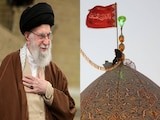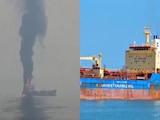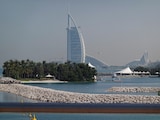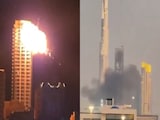"It smells like death," said Maha Thaer, a mother of four, as she returned to the devastated southern Gaza city of Khan Yunis on Sunday, after Israeli troops withdrew.
"We don't have a city anymore -- only rubble. There is absolutely nothing left. I could not stop myself crying as I walked through the streets," the 38-year-old told AFP.
"All the streets have been bulldozed. And the smell... I watched people digging and bringing out the bodies," said Thaer, whose home was partially destroyed.
Soon after the Israeli army said its troops were pulling out, people began to emerge into the devastated landscape -- the residents of Khan Yunis returning to find what remained of their homes.
Nearly 400,000 people lived in Khan Yunis and its environs before October 7. Much of the area is now in ruins after months of bombardment and heavy fighting between Israeli troops and Palestinian militants.
A straggle of men and boys riding donkey carts, bicycles and the odd pickup truck headed north out of Rafah in the far south of the Gaza Strip, where more than 1.5 million Palestinians had taken refuge from the relentless Israeli ground invasion and bombardment.
They passed the burned-out shell of the Al-Salam hospital, with almost all of the buildings around it razed to the ground.
Thaer, from the upmarket Hamad City district in the west of Khan Yunis, said she was "very shocked and sad".
"There were no walls or windows. Most of the towers were completely blown up," she said.
Thaer said she would move back into her badly damaged apartment, "even though it is not suitable for living, but it is better than tents."
Her neighbours suffered a greater misfortune. "They found their homes destroyed and they don't know where they will go," she said.
Other Gazans carried a mattress on their heads in the hope they would still have four walls to put it in.
One of those who left Rafah on Sunday climbed on the top of a heap of rubble in Khan Yunis which once had been a home.
With everything around him in ruins, AFP photographs showed the man standing among smashed concrete and corrugated iron roofing.
Not a single structure within sight appeared untouched by the war.
Other images showed large swathes of the city flattened.
The Israeli army told AFP that it had pulled its 98th division of ground troops out of the southern city on Sunday to "recuperate", with one official telling the Israeli media it had killed thousands of Hamas fighters there.
"There's no need for us to remain... We did everything we could there," an army official told Haaretz newspaper.
The Gaza war broke out on October 7 with an attack by Hamas militants that resulted in the deaths of 1,170 people, mostly civilians, Israeli figures show.
Israel's retaliatory offensive has killed at least 33,175 people in Gaza, mostly women and children, according to the health ministry in the Hamas-run territory.
(Except for the headline, this story has not been edited by NDTV staff and is published from a syndicated feed.)















